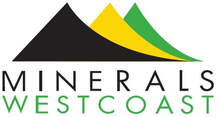Leviticus, 16: 21 – ‘Aaron shall lay both his hands upon the head of the live goat, and confess over him all the iniquities of the children of Israel, and all their transgressions in all their sins, putting them upon the head of the goat, and shall send him away by the hand of a fit man into the wilderness.’
Scapegoating’s origins lie not so much in Bronze Age Palestine but in human nature. As always though, the Bible’s King James version is beautifully phrased. Kiwibank this month rolled out its list of untouchables, and it seems those in the fossil fuel business have made the cut, even if their customers have not.
The blacklist includes brothels and casinos; companies producing, manufacturing or extracting coal, oil or gas; weapons, tobacco, palm oil, and synthetic cannabis producers; and predatory lenders.
What’s telling is that those meeting the demand for fossil fuels made the list, but those creating the demand did not.
Had Kiwibank wanted to actually do something, it would have blacklisted fossil fuel users. This would mean as an entity it couldn’t even do business with itself. Regarding its own emissions reductions, it’s yet to purchase a single electric vehicle. Not one.
Its major parent company, NZ Post, a courier/freight company, likely consumes more liquid fuel than any other government entity.
The Department of Conservation’s countless helicopter hours, chainsaws, Hiluxes, and Koru Club memberships are all, apparently, necessary for conservation of our native species. Then there’s Air New Zealand, New Zealand’s largest single emitter, and majority state owned. In the public sector alone, it’s clear reductions in fossil fuel consumption are going nowhere.
In New Zealand, coal and gas collectively account for more than 90 per cent of the energy needs of the dairy and meat processing sectors, and, with diesel, almost 87.5 per cent of our hothouse horticulture’s heating requirements.
Then steel production, cement manufacture, and, to a lesser extent, warming schools, hospitals and homes. The importance of backing up one of the world’s cleanest electricity grids shouldn’t be forgotten either.
I challenge anybody to keep a straight face and say the above sectors are luxuries. Coal is a fuel and an ingredient. It affords us with food, shelter, warmth, and light. Oil and gas provide all this, plus mobility. These are necessities, as even this government conceded when drawing up its arbitrary list of ‘essential services’ earlier this year.
The vibrancy of coal users is what makes a coal mine economic. It’s a fuel – a source of heat. Fuels allowed our ancestors to cook meat and survive ice ages. These fuels provide life’s necessities. More people on earth have these necessities than at any point in history. That they contribute to climate change is true, but there are few easy substitutes, which makes replacing them such a difficult proposition. Scapegoating achieves nothing.
To put fossil fuel production on the list with brothels and casinos; weapons, tobacco, palm oil, synthetic cannabis producers, and predatory lenders makes little sense. A weapon’s sole purpose is to kill. Predatory lending’s sole purpose is to exploit. Brothels, casinos, tobacco and cannabis are all non-essentials with harmful consequences – though quite why alcohol doesn’t feature I’ve not a clue. Fuel, however, has no place on this list.
We collectively benefit from the abundance industrialisation has created. It follows we must collectively take responsibility. Without consumers, I struggle to picture miners digging up coal and lighting bonfires for the thrill of it. We all know we share the blame, and that no person is innocent or pure in this situation. But still, we select a goat, mutter a few incantations, and drive the goat off into the wilds feeling all is mended.
It’s not. Putting the sins of the tribe on the goat does nothing to absolve the sinners themselves. It’s also a bit rough on the goat.

